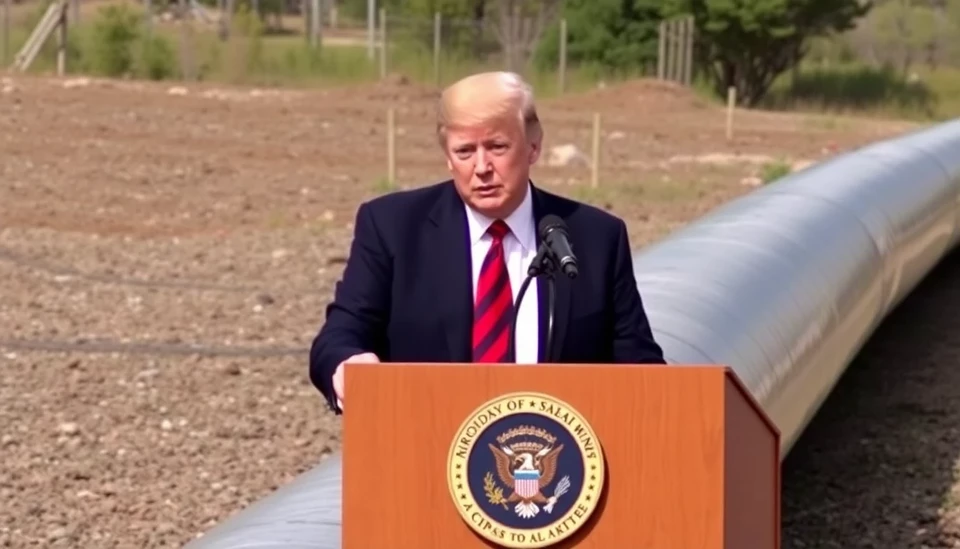
Recent investigations have placed blame on the operator of the Keystone oil pipeline, TC Energy, for playing a significant role in the unfortunate oil leak that occurred earlier this month. The spill, which took place in Kansas, has raised concerns not only about environmental safety but also about the integrity of existing infrastructure handling crude oil transport across the United States.
According to regulatory findings released by the Pipeline and Hazardous Materials Safety Administration (PHMSA), deficiencies in the operator's maintenance and monitoring practices were primarily responsible for the spill. The breach, which released an estimated 600,000 gallons of crude oil, was deemed avoidable had appropriate measures been implemented by TC Energy.
The PHMSA noted that the operator failed to adhere to established safety protocols and did not effectively manage the risks associated with an aging pipeline system. The investigation revealed lack of sufficient real-time monitoring and inadequate response procedures, which ultimately compounded the issue when the leak was detected. This resulted in a delayed response that allowed the spill to escalate, causing severe environmental damage to the surrounding area.
TC Energy has publicly acknowledged the findings and stated its commitment to addressing the deficiencies identified by regulators. In a statement, the company expressed its intent to enhance its operational integrity and to implement recommended changes aimed at preventing future incidents. However, critics argue that such assurances come too late for the communities affected by the current spill.
This incident marks one of the significant oil spills in recent history, drawing intense scrutiny from environmental groups and local communities alike. Concerns about the Keystone pipeline’s safety have been mounting for years, especially given its history of past leaks. The current spill has reignited debates about the sustainability of fossil fuel infrastructure in the face of climate change.
As regulators continue to investigate the circumstances surrounding the leak, the repercussions for TC Energy could have far-reaching implications not only for the company but also for the broader oil industry in the U.S. The growing emphasis on environmental protection and corporate accountability means that failures to maintain pipeline safety may result in stricter regulations and heightened public scrutiny in the future.
In light of the findings, industry experts are calling for an urgent review of safety measures across all pipeline operators to prevent similar incidents. The call for more stringent regulations echoes throughout the sector, with advocates emphasizing the need for proactive maintenance and transparent reporting to safeguard both the environment and communities living near oil infrastructure.
As the investigation unfolds, stakeholders, including government officials, environmental advocacy groups, and the public, will be closely tracking TC Energy’s next steps and the broader implications for energy policy in the United States.
#Keystone #OilLeak #TCenergy #EnvironmentalSafety #PipelineSafety #PHMSA #Sustainability #ClimateChange
Author: Megan Clarke


